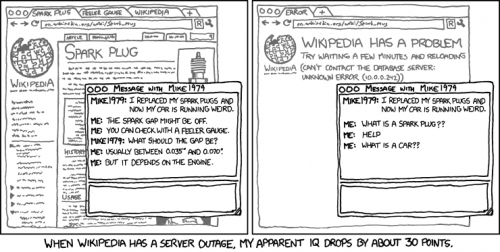Extended Mind
One of the most popular dualism is the substance dualism introduced by Rene Descartes. Descartes distinguished the mind from matter and claimed that they are fundamentally different. He describes the mind as a thinking substance and matter as an extended substance. If matter and mind are different substances, is there a boundary for the mind? It is a common notion that the mind is nothing more than the working of the brain which resides in the skull. Hence the mind is in the skull.
Andy Clark and David Chalmers, in their seminal work ‘Extended Mind’ in 1998, claim that cognition is not restricted to the head but can be extended using different artifacts. This challenges the view that the mind is a little black box in the head. The basic idea of ‘Extended Mind’ is that the mind is not constituted just by the brain but also by electronic devices, papers and other items which are outside the head. The location of the mind is irrelevant. It is the functionality that is considered here. It doesn’t matter if the calculation is performed in the head or using a calculator.
Technology has become an integral part of who human beings are. Technology doesn’t just play a passive role but instead influences decisions. There is certain sense of dependency on books, computers and calendars. If a person spends a large part of the day with their mobile phone, to make calls, find routes to new places, read news articles, etc. is the mobile phone part of the person’s mind or is it still just an external device? Would the mental state of the person change is the mobile phone is broken or switched off?
Even if all the electronic devices and papers are wiped out of the surface of the earth, aren’t humans influenced by their fellow beings and dependent on them? Clark and Chalmers question, “And what about socially-extended cognition? Could my mental states be partly constituted by the states of other thinkers? We see no reason why not, in principle.” Conversations often involve ‘Remind me to send X to Y’. How different is this from setting reminders on the mobile phone? How different is it to remembering in the head? Aren’t these complimentary?
Image Source: https://xkcd.com/903/








Comments are closed.